I share the 411 on intermittent fasting and working out and whether or not it can enhance or hinder athletic performance and fitness level.
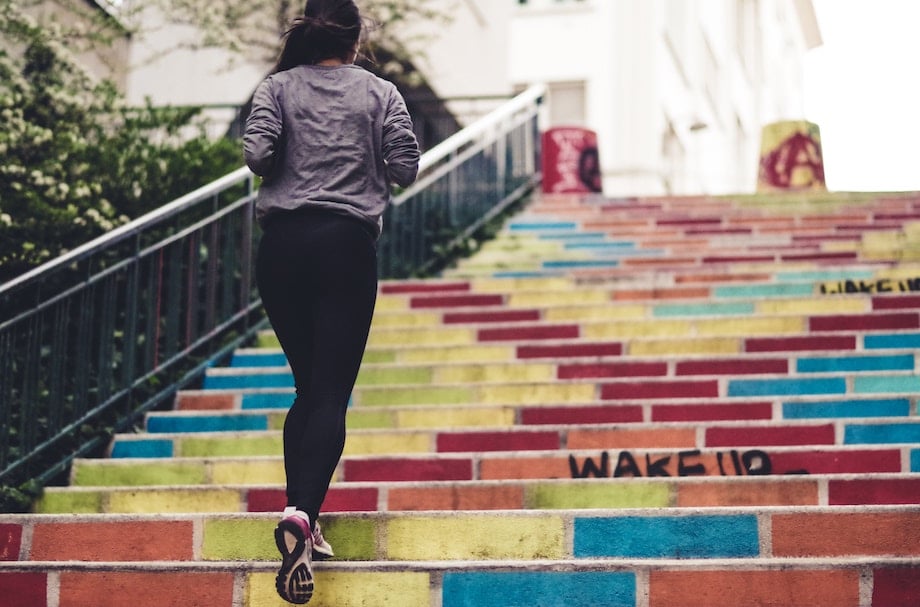
When it comes to exercise and athletic performance, I’ve noticed an increased interest in practicing intermittent fasting (IF). Intermittent fasting involves eating all your calories in a smaller time window (usually 8 hours), and fasting for the remainder of the day (usually 16 hours). For most people, this means skipping breakfast and having an earlier dinner, though it could be a lot more extreme depending on the regime you choose.
In light of the public interest and countless message boards debating the potential benefits and consequences of intermittent fasting and working out, today we’re gonna dig deep into the evidence and shed some light on how intermittent fasting can impact your performance and fitness.
Intermittent Fasting and Working Out
Ramadan Fasting in Athletes

Before we jump into the specifics, let’s start from the beginning with the OG of fasting: Ramadan. This marks the most sacred month of the year in Islam, where strict fasting from all foods and even liquids is observed from sunrise to sunset.
Since this has been around for so long, there’s been countless studies done on Ramadan’s effect on athletes. Depending on where you are in the world and how much sunlight you get in a day, the fasting period can range anywhere from 11-16 hours. If you’re counting, these no-food periods are quite comparable to intermittent fasting. So how did the athletes fair during their month of daily fasting?
A 2016 review found that athletes practicing Ramadan fasting reported feelings of fatigue and stress. We are not surprised of the emotional effects of fasting. However, when it comes to the physical effects of fasting, the evidence shows no difference in physical performance in Ramadan fasting athletes. Perhaps it’s due to making a strong effort to maintain proper nutrition?
One study on 734 athletes found that though most waking hours were spent fasting, almost half of the athletes maintained the same caloric intake as their pre-fasting period, fuelling them with proper amounts of energy. Sports equates to bucketloads of sweat, so obviously hydration is also super important. Three quarters of athletes reported drinking more fluids than they usually do outside of Ramadan month.

Though feelings of stress are commonly reported, the athletes stayed mentally sharp and on their A-game. One study looked at the effects of fasting on an elite karate group and found their reaction time and neuromuscular performance were unaffected from Ramadan fasting.
A few years later, another study compared athletes’ muscular endurance pre-Ramadan vs. two weeks and four weeks into their fasts, and found that muscular force and endurance were pretty much unchanged. However, it’s important to note that they emphasized the importance of maintaining the same high-level training throughout Ramadan to prevent “detraining”, which would have a negative impact on performance.
So it seems that even though athletes felt more stressed and fatigued (understandably so), the general consensus with the physical evidence is that Ramadan fasting has a very small impact on exercise performance. It seems as though so long as athletes take proper care of their nutrition, hydration and keep up with their normal training routine, they’re good to go.
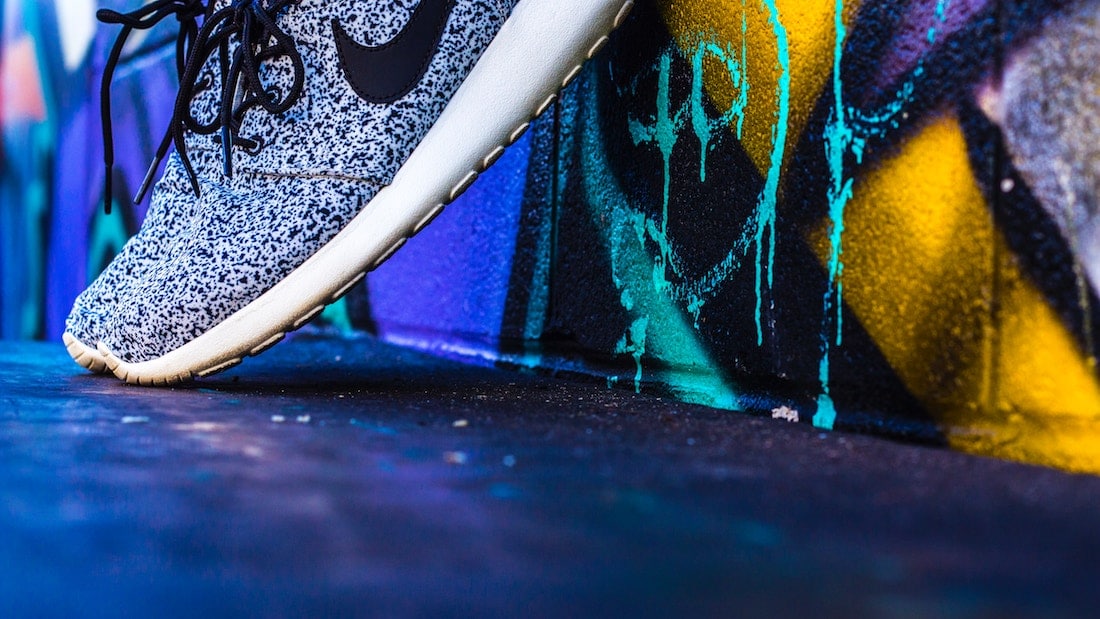
However, it’s super important to note that most of these studies were conducted in a super controlled test environment (aka athletes were hooked up to machines and all that jazz). In a competitive sport environment, there are so many other factors that could interact with fasting which could affect performance. For example, perhaps outdoor heat can affect the hydration status or calories burned? These are yet to be explored, and we do need more real-life studies in real-life settings that take into account the multitude of challenges of competitive sport events. Isn’t that always the case with research? As always, we need to see more before drawing conclusions.
Metabolic Changes
Increased Insulin Sensitivity
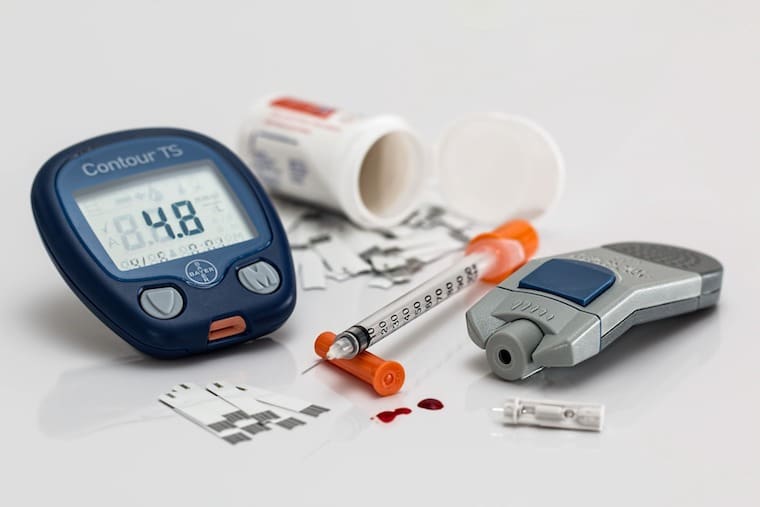
One of the most prominent improvements found from intermittent fasting is improved insulin sensitivity. For example, one 2017 review reported a reduction in blood sugar levels while intermittent fasting (compared to a continuous energy restriction diet). It seems that when we zero in on intermittent fasting and working out, the results are similar, if not even more pronounced!
Research has found that intermittent fasting and working out facilitates higher muscular adaptations that lead to improved glucose tolerance and insulin sensitivity. However, it’s noted that this effect appears to be more prominent in individuals who ate a high-calorie, fat-rich diet.
On the other hand, one study compared fasting athletes with high-carb athletes and found very similar results – fasting athletes had reduced glycogen breakdown during exercise. In addition, some research has linked high levels of glycogen with insulin resistance. So, following that association, fasting athletes with reduced glycogen levels in their bodies can mean increased insulin sensitivity. Makes sense?
Increased fat metabolism
When fasting and exercising on an empty stomach, overall studies have shown that your body metabolizes more fat and becomes progressively better at doing so with increasing levels of physical intensity. One study found that intermittent fasting and working out led to increased fat metabolism (aka fat is being used for fuel as opposed to glucose).
In addition, research suggests that fat utilization within the first 30 minutes of exercise is greater in fasting athletes compared to fed ones.
Impact of Intermittent Fasting on Working Out
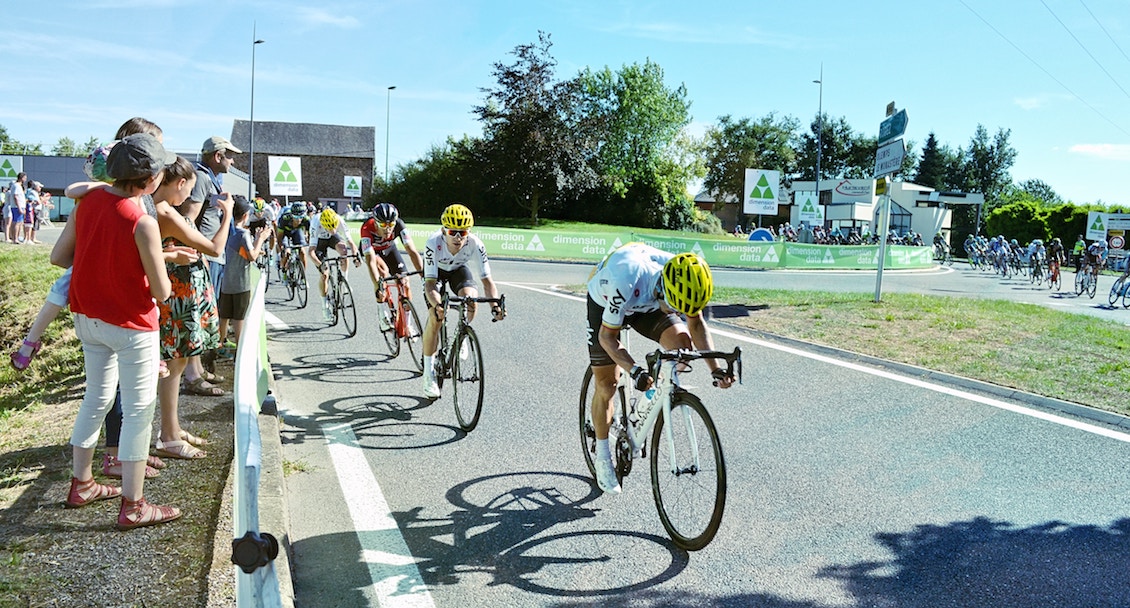
When it comes to intermittent fasting and exercise performance, the overall research is similar to that of Ramadan fasting – meaning that intermittent fasting has an overall small impact on athletic ability.
One study took a look at overnight fasting plus caloric restriction in cyclists, and found that not only did they have the same endurance performance, but their power-to-weight ratio actually improved!
Another study focused on men after 12 weeks of intermittent fasting and found no difference in muscle power output in both young and old men. Similarly, a 2018 randomized control trial found that intermittent fasting did not negatively affect lean mass retention or muscular function in young men doing resistance training.
However, a recent 2020 review found mixed results on the effects of intermittent fasting and muscle strength. For example, some studies reviewed reported subtle increases in grip strength, vertical jump, and overall muscle strength. While other studies found no significant change in strength. This same review also stated that Ramadan fasting could cause aerobic impairments such as decreased aerobic capacity.
With that said, we still need more research on intermittent fasting and working out to get a clear picture of its impacts on athletic performance, strength, and endurance.
Growth Hormone and Impact on Athletic Performance
Growth hormone (GH) is a controversial topic in the competitive sport world, as research has shown that it can increase lean body mass, leading to many athletes taking a synthetic version for a competitive advantage. Interestingly, there’s some evidence showing that your body’s natural production of GH increases during intermittent fasting, leading many to believe that intermittent fasting can improve overall athletic performance.
However, an increase in growth hormone and potential increase in lean body mass doesn’t automatically mean you’ll be faster and stronger. A comprehensive review on this topic looked at all the up-to-date studies on this and concluded that although yes, GH increases lean body mass, it doesn’t improve strength, and may even reduce exercise capacity.
With that in consideration, while intermittent fasting may help to increased growth hormone and thereby body mass – it may not necessarily improve strength and exercise capacity. Like we said, more research is needed in this area to get a clear picture of the relationship between intermittent fasting and physical markers of strength.
Intermittent Fasting Improving Post-Exercise Recovery

So now let’s talk about the effects intermittent fasting during the recovery phase. Some research suggests that intermittent fasting and working out (specifically endurance training) may be beneficial for the recovery period, as it can facilitate more rapid re-activation of muscle protein translation. This means that the muscle repairs itself quicker than it would under normal, non-fasting circumstances.
Another study done in 2009 found similar results for resistance training while intermittent fating. An hour after lifting weights in a fasted state, levels of p70s6 kinase (which indicates muscle growth) were found to have doubled, compared to those who lifted weights in a fed state. So based on this early research it seems that intermittent fasting and working out may be an aid in rapid recovery.
Does Intermittent Fasting Increase Iron Deficiency Risk in Athletes?
Iron is an essential component in your red blood cells that help transport oxygen to different muscles during exercise. Athletes actually have an increased risk of iron deficiency and this is especially true in female athletes who also have to account for loss of blood through their monthly visit from aunt flow!
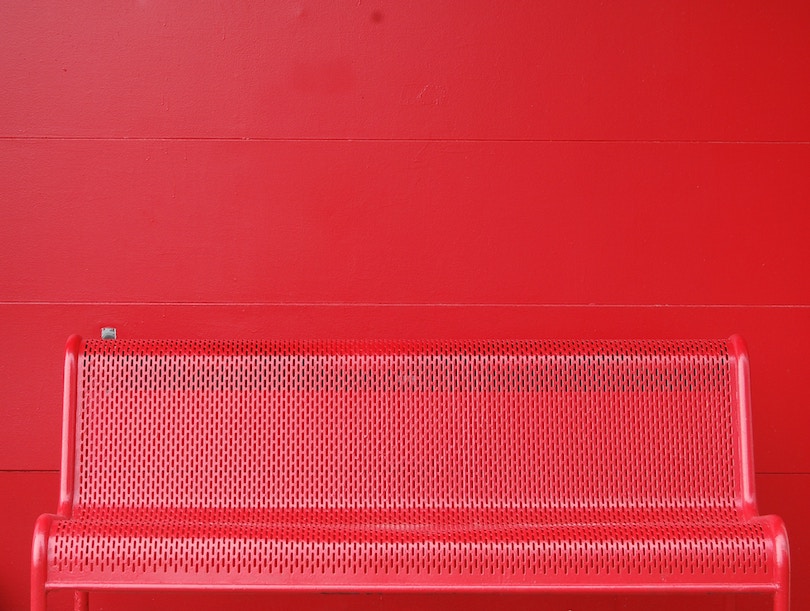
To understand how this relates to intermittent fasting, we have to first understand how iron is absorbed in our bodies. A hormone called hepcidin is a key regulator of iron absorption. When hepcidin levels are high, iron absorption is low, potentially due to inflammation. The female athletes in this study had higher hepcidin levels during intensive training season, despite the fact that they ate more iron-rich foods. So it seems that higher intensity level training is linked to higher hepcidin levels, and therefore lower iron, putting some athletes at increased risk for anemia.
Unfortunately, this phenomenon of athletes and low iron stores clashes directly with intermittent fasting due to timing issues.
The best window of opportunity for peak iron absorption is in the mornings, because hepcidin will be lowest and making iron more readily absorbed. However, intermittent fasting follows a skip-breakfast approach on most days which can interfere with the maximum absorption of iron.
With that said, athletes are already at a higher risk for iron-deficiency and anemia, and intermittent fasting can increase that risk.
How to Safely Practice Intermittent Fasting: Action Plan

So – what if you still want to do intermittent fasting and workout?
Here’s how to do it safely.
A lot of it really just boils down to ensuring that you get enough calories and nutrients in the period of time that you do eat. These are the main things to keep in mind if you do choose to make an informed decision to follow intermittent fasting:
Hydrate, hydrate, hydrate.
About 20% of our daily water intake comes from food, and we’re more likely to be reminded to drink water during structured meal times. So on fasting days your risk of dehydration may be higher from the lack of water-containing food intake during the mornings, and the cues for you to drink water with meals. So be mindful of staying hydrated, especially during your workouts!
Don’t treat eating periods as a “free for all”.
Look, I’m all about the occasional indulgence, but if improved metabolism and performance outcomes are your goals for intermittent fasting, then it’s best not to treat the shortened eating periods as “binge fests”. But remember, the only difference between intermittent fasting and a regular eating pattern are the time windows, not the actual food you put in your mouth. So on that note…
Make every bite count.
Since the time period where you can eat is shortened, it’s super important to make sure that your meals are filled with the good ole’ protein, healthy fat and fibre. This means lean proteins like chicken or fish, whole grains and avocados, seeds and nuts.
Contribution by:
RD2B Trista Chan
RD Kevin Iwasa-Madge
More Blog Posts You might Like
If you liked this blog post on intermittent fasting and working out, then you might also enjoy these evidence-based reads:
- The Best Pre- and Post-workout Meals
- Intermittent Fasting For Weight Loss: The Evidence Based Pros and Cons
- Can You Drink Coffee While Intermittent Fasting
- What Is The Best Beverage To Drink During Exercise?
Updated on January 19th, 2022

Abbey Sharp is a Registered Dietitian (RD), regulated by the Ontario College of Dietitians. She is a mom, YouTuber, Blogger, award winning cookbook author, media coach specializing in food and nutrition influencers, and a frequent contributor to national publications like Healthline and on national broadcast TV shows.
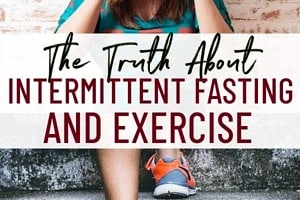
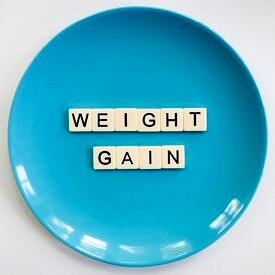
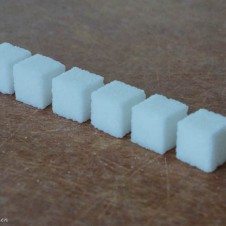
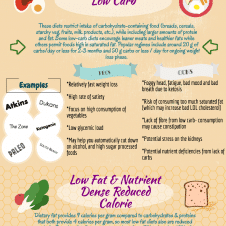

rita says
Thanks for the balanced and well-researched article. Rare find about the topic.
Abbey Sharp says
You’re welcome!
Tatyana Lavrenchuk says
There’s no question about that the fasting wouldn’t be effective for endurance training while you’re fasting. I was cycling for 2 hours (the shortest time I usually cycle) during my first half of the 36 hour fast, of course, I didn’t feel great. The point is how fasting can make you a better endurance athlete in a long run, not during the fast or even the next day. So it remained to see later.
Alice Mecklenburg says
It makes a nice change to read a responsible and nuanced take on IF and exercise performance (with studies to back it up)! It can be a huge adjustment getting used to a new routine like this but I didn’t notice any deficits in my ability to train or workout. I broke threw some milestones in my 5km runs and I’m certain that I’ve gotten into better shape without losing any muscle tone.
I could’ve used the advice not to treat my meals on IF as a free for all though! I took the ‘eat anything’ thing a little too literally and was guilty of overindulging quite a bit at the start. But eventually it does get easier!
Abbey Sharp says
Thanks for sharing!
David Stockman says
I’ve been practising IF for many years now (I turned 61 last month). It seems a lot of people can’t imagine going without food for any longer than 12 hours, but it really does get easier with time. I ran my best (not fastest) marathon in 2014, after an overnight fast (and no breakfast).
Abbey Sharp says
Hey David, glad IF is working for you. Thanks for your comment
PABIKE says
I’d classify myself as an elite athlete, but not a pro. I’m currently doing a 16:8 IF and have had no issues with it other than I actually enjoy breakfast in the morning, and now don’t do that. I do however just have breakfast when I am within my 8 hour window.
Right now, I eat starting at 11am, and I’m done by 7pm. I train in the afternoon after work and then eat dinner as late as I can, to make sure I have nutrition available to recover from what I just did.
I’m a voracious eater in the morning, going just a night is usually enough for my stomach to be rumbling. Then I normally trail off my calories so I’m not so full later in the day.
If I do a workout in the morning, on a weekend day for example, I go into it fasted. Sometimes I’m fine, sometimes I get dizzy. I do these inside (I’m a cyclist, and train a lot inside anyway).
I’m not sure if I’m really noticing anything in terms of performance, I haven’t lost any though if that’s some useful data. I haven’t done a race fasted, I won’t either I think your body does need some topped off glycogen stores before doing a hard activity. So I do a normal pre-race meal 3-4 hours prior, then 1 hour before I do half of an energy bar or something, then race, then resume eating that day, then stop at 7pm and resume fasting the next day. I also haven’t done a VERY long ride while fasted, I’ve done 2-3 hours, I have an emergency food supply with me, but I’ve been okay. I think that’s playing with fire though, the math doesn’t say you can hold out that long I’ve just been lucky.
Of note, I’m 5′ 11″, 152 pounds, body fat is very low, I look like a cyclist. I’m not a pro like I said, but I can ride a 10 mile time trial under 20 minutes (30+ MPH) if that helps justify some numbers here. My FTP is 350 plus or minus, and has been up as high as 376. I’m 40 years old, male, have a long distance running background, sub 15:00 5k, 1:08 and change half marathon.
I haven’t done any complete day fasts, the 16:8 is doable though even with how hungry I am. I have a resting metabolic rate that needs 1810 calories just to function (been tested). With a normal day of riding I need to aim for 3500-4000 calories with life included in there. I use a power meter that knows my wattage output that can convert that all to kjoules and then to kcals. Since I know my REE I can do the math and adjust from day to day based on my needs. I’m calorie aware. I eat roughly 10 percent of my daily as “i want it” foods, the rest are good bang for the buck foods. It’s hard to get the calories I need in 8 hours, but I’m close enough and to make sure I don’t lose too much weight I eat more on the days I’m light on the bike. If I get under 150 pounds it’s not sustainable and I can’t perform well for longer than about 3 weeks.
Hope this helps someone. Long/short – it’s doable, be smart with the calories you eat, the data that it helps/hurts seems to be inconclusive for me. I may stop at some point, I think what it has done is stopped me from mindless snacking just because I am hungry. I think, okay, 8 hours to eat, let’s make it count. I used to do calories in/calories out, and that worked all the same. I’m doing this for the possible aid in HGH production, and just to see what happens.
rita says
Along with the article reviewing the research, this was probably the most sensible and helpful content I’ve read on this. Using IF to cut snacking as well. Training fasted is a bit of gamble each time – is this gonna be the hill that breaks me?
Greg says
No elite athlete would willingly try this diet.
Joseph nathan Brooks says
I am 50 years old my wife is 48, Intermittent fasting worked so well for us, we decided to write my book “Fast and Pray” 21-days to a breakthrough. It lowered her A1C from15-5.0 normal. It increased my HGH levels, gave us mental clarity, focus increased my muscular endurance and I lok better than many 20 year olds who eat 5 meals a day. In the beginning you will have withdrawals and get angry but after a couple of days you blood will regulate, just stick with it! remember you are an ADDICT! Carbs and SUGAR are your nemesis and they don’t want to leave your body. KICK them out and bring IF in, you won’t regret it.
Abbey Sharp says
Thanks for sharing!
Farrah says
I’ve never really tried/committed to trying intermittent fasting, but I’ve definitely heard a lot about it! I get too cranky when I’m hungry so I don’t want to subject people to that, hehehe.
Abbey Sharp says
Hahah I hear ya
Natalie says
Such an interesting read Abbey. I haven’t tried it but honestly I think I couldn’t even do it. I must eat. If I don’t have foods in my stomach I get so nervous and cranky. Not to mention I have like zero energy.
Abbey Sharp says
I hear ya Natalie. I’m the same way
Angela Cardamone @marathonsandmotivation.com says
This is very interesting! It is something I have not tried, but I know several people who have had a lot of success with it!!
Abbey Sharp says
Thanks Angela. It has become very popular
Mikki says
Great post Abbey.
I have done intermittent fasting a few times and my husband does it on the weekends. We are careful to hydrate and when it does come time to eating, we don’t pig out.
Everything in moderation.
Abbey Sharp says
Yes, totally. Thanks for sharing Mikki
Deborah Brooks says
I tried doing it a few months ago and found I really did not have the energy for my longer runs. I could do 30 min of exercise without eating but then I kind of crashed.
Abbey Sharp says
Ah very interesting. Doesn’t seem like it would be as effective for endurance workouts.
Carrie says
Fantastic info Abbey! I haven’t tried nor do I think I would be able to handle it. I feel like I get hangry now if I go too long without food so if I did try it I would be the one eating the entire chocolate cake lol I guess I do sort of do intermittent fasting though (and have for years)…we eat dinner normally between 5-5:30 every night and then I don’t eat in the morning until maybe around 6:30-7 am depending on how long my workout is. I do workout on an empty stomach because I get up and workout so early but then eat when I’m done.
Abbey Sharp says
For sure. Thanks for sharing Carrie